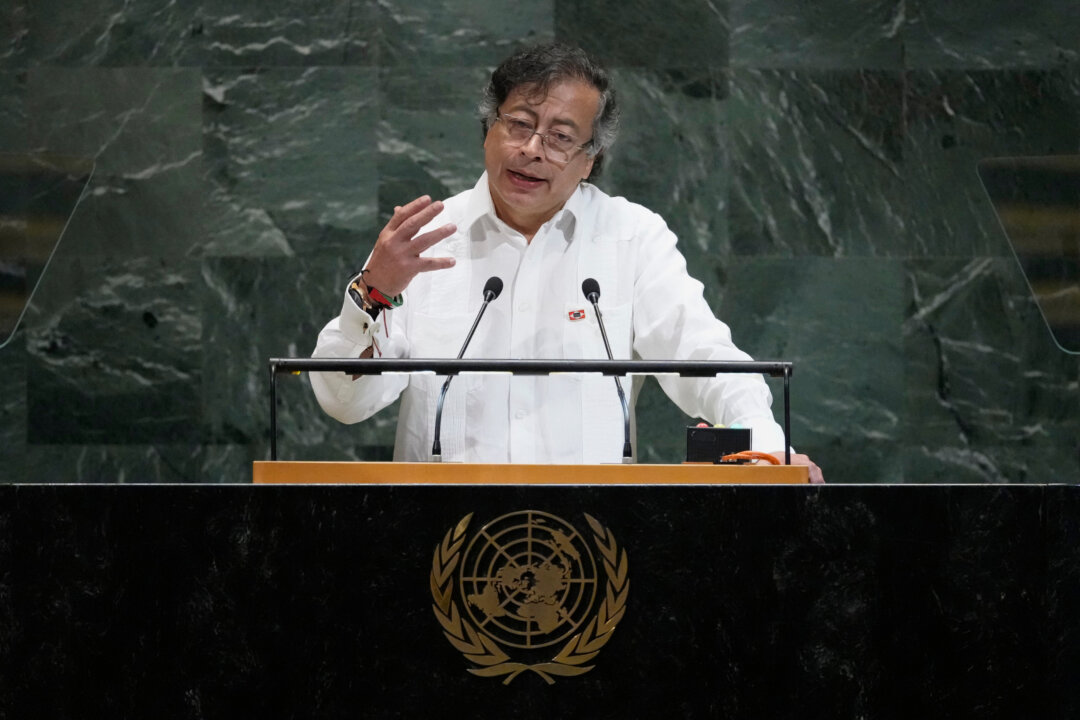US Escalates Caribbean Counter-Narcotics Operations, Draws Colombian Criticism
The U.S. has intensified counter-narcotics operations in the Caribbean, conducting military strikes on suspected drug vessels and killing traffickers, leading to criticism from Colombia's President.
Subscribe to unlock this story
We really don't like cutting you off, but you've reached your monthly limit. At just $5/month, subscriptions are how we keep this project going. Start your free 7-day trial today!
Get StartedHave an account? Sign in
Overview
- The U.S. has significantly increased its counter-narcotics operations within the Caribbean, focusing on disrupting illicit drug trafficking routes.
- These intensified operations include the deployment of military assets to conduct strikes on suspected drug vessels in the region.
- The military actions have resulted in the killing of individuals identified as suspected narco traffickers during these interdiction efforts.
- Colombia's President has publicly voiced criticism regarding the U.S.'s aggressive approach to counter-narcotics in the Caribbean.
- The criticism highlights potential diplomatic tensions and differing strategies between the nations in combating drug trafficking.
Report issue

Read both sides in 5 minutes each day
Analysis
Analysis unavailable for this viewpoint.
Articles (3)
Center (0)
No articles found in the Center category
FAQ
The U.S. has deployed B-52H Stratofortress bombers, F-35B Lightning II fighters, at least seven warships, and a nuclear submarine to the Caribbean. Marines from the II Marine Expeditionary Force are also involved, with a newly established Joint Task Force coordinating air, maritime, and special-operations missions[1].
U.S. military strikes on suspected drug vessels in the region have resulted in multiple deaths, including 11 killed in the first operation on 2 September, four killed in a strike on 3 October, six killed in a strike announced on 14 October, two killed on 16 October, and three killed on 17 October—numbers reported by U.S. officials and Venezuelan sources[3].
The new Joint Task Force, led by II Marine Expeditionary Force, is designed to synchronize and augment counter-narcotics efforts across the Western Hemisphere. Its objectives include leveraging maritime patrols, aerial surveillance, precision interdictions, and intelligence sharing to detect, disrupt, and dismantle illicit trafficking networks in partnership with U.S. and regional counterparts[4].
Colombia's President has publicly criticized the U.S. for its aggressive military strikes, which have resulted in civilian casualties and raised concerns about sovereignty and the legality of such actions. The criticism reflects broader diplomatic tensions and differing strategies between the U.S. and regional partners in addressing drug trafficking[3].
The escalated U.S. military operations could strain diplomatic relations with regional governments, provoke legal and humanitarian concerns over civilian casualties, and signal a shift toward more direct military involvement in counter-narcotics efforts. There is also speculation that the operations aim to pressure the Venezuelan government, though experts doubt a full-scale invasion is likely.
History
- This story does not have any previous versions.


